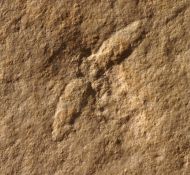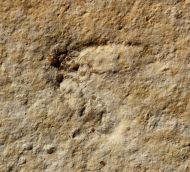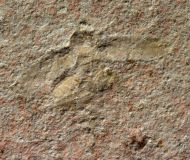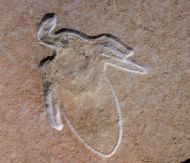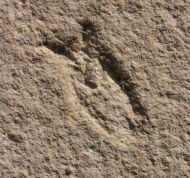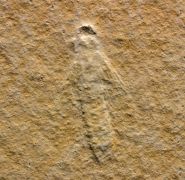Fossils for sale
Jurassic insects Fossils from Solnhofen and Eichstäät .

Insects from the Solnhofen Limestone
The Solnhofen Limestone is considered one of the most important insect fossil sites of the Mesozoic worldwide. The fine-grained sediments enabled exceptional preservation, with even the finest structures such as wing venation, body segments, and occasionally color patterns visible. With several hundred described species in dozens of genera, the insect fossils document an extraordinary diversity and make Solnhofen a key locality for studying insect evolution in the Late Jurassic. Particularly impressive is the diversity of fossil dragonflies, with more than 50 species known from Solnhofen alone.
Overview of Selected Orders
- Dragonflies (Odonata): Often preserved in great detail, frequently with complete wings; rarely with preserved color patterns in the wing venation.
- Beetles (Coleoptera): Very diverse, documenting early lineages of modern beetle groups.
- Cockroaches (Blattodea): Common, with well-preserved wing structures.
- Hymenopterans (Hymenoptera, incl. wood wasps): Rare, but significant for the evolution of this group.
- Water striders and true bugs (Heteroptera): Indicate the proximity of the lagoons to land and freshwater habitats.
Significance
The insect fossils from Solnhofen are not only aesthetically impressive but also ecologically informative. They document life on land and at the margins of the lagoons, habitats that are otherwise rarely preserved in the Jurassic fossil record. Together with plants, reptiles, and birds, they provide a complete picture of the ecosystem. Particularly important is the combination of terrestrial and aquatic organisms, showing how closely interconnected habitats were in the Late Jurassic.
References
- Handlirsch, A. (1906–1908): Die fossilen Insekten und die Phylogenie der rezenten Formen. Engelmann, Leipzig.
- Ansorge, J. (2003): Insects from the Upper Jurassic of Solnhofen – diversity and palaeoecology. Acta Zoologica Cracoviensia 46 (Suppl. Fossil Insects): 291–310.
- Bechly, G. (1996): Morphological studies on wing venation and systematics of Odonata. Petalura 2: 1–402.
- Grimaldi, D. & Engel, M. (2005): Evolution of the Insects. Cambridge University Press.
This fossil insect does have a wingspan of about 34 mm.
This speciem come with positive and negative side and it also offers some potential for further preparation.
